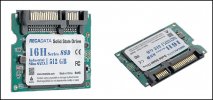arcticfire
Active Member
- Joined
- Jun 28, 2015
- Messages
- 484
- Reaction score
- 188
- Country
- United Kingdom
these types of DVR's have been around longer than dashcams have
they're primarily a fleet market type product, trucks, buses etc, not really designed for consumer useAye but I'm sure it was primarily D1 quality, I remember finding it very difficult to find 720p never mind 1080p! Why do you reckon there's not much of a consumer market for these? I'm guessing because they are more complex to install as opposed to plug in to the 12V socket and away you go, but I do seem to be seeing increased demand for such online?
they're primarily a fleet market type product, trucks, buses etc, not really designed for consumer use
I think we may have discussed this a long time ago but would it really be that hard for a dash cam to have a USB3 connection to an external hard drive rather than use an SD card? Would it be able to support the data rates required?
nothings impossible, the impossible just takes longer and costs more
technically it would be possible with a few different chipsets, to be feasible you would likely have to decide on and work with a known USB driver/hard drive combo to have the appropriate drivers to make it work, supporting any USB drive is probably a challenge, not sure that kind of support is available, some of the problem with that as I'm sure you'd appreciate is that even if you decide on which hardware to use that stuff can change over time as well when hard drive manufacturers etc update their products, there's a lot more possible combinations than there is with just using flash memoryWould the chipsets in a typical dash cam support a USB connection to an external drive? Would the supplied SDKs accommodate such a feature?
yeah something with an M.2 drive or similar is possibly a better approach, would eliminate the USB related issues with trying to do something externalThanks for the explanation. From what you say it sounds like the best approach then would be to build a dedicated SSD directly into the camera, but perhaps one that could be removed and replaced with a spare.
Thanks for the explanation. From what you say it sounds like the best approach then would be to build a dedicated SSD directly into the camera, but perhaps one that could be removed and replaced with a spare.
anything with a hard drive would be more suited as a hideaway unit so size is a bit less of an issue, for practical purposes you couldn't have a USB hard drive close enough to a regular camera in a lot of cases anywayThat would be good but would this make the cam too big? I was thinking that by being able to run just a USB cable the ssd could be located elsewhere separately?
It's not about being impossible, just about being impractical
That would be good but would this make the cam too big? I was thinking that by being able to run just a USB cable the ssd could be located elsewhere separately?

What is UFS 3.0?
UFS Stands for Universal Flash Storage. It is an ultra small storage chip similar to a micro-SD card with a performance equivalent to an SSD drive. According to Samsung, the first UFS v1 standard was published by JEDEC on March 29, 2016. Since then, several iterations of UFS cards have been published, including UFS 2.0, 2.1. UFS 3.0 is the latest iteration of state-of-the-art performance storage chips. UFS 3.0 storage was supposed to debut on Samsung Galaxy Fold, but it will make its market debut in the One Plus 7 Pro.
Samsung revealed at the end of last year that UFS 3.0 would deliver more than double the bandwidth as its predecessor (UFS 2.1), going up to 2.9GB/s. UFS 3.0 modules also consume less power, making it a win-win.
